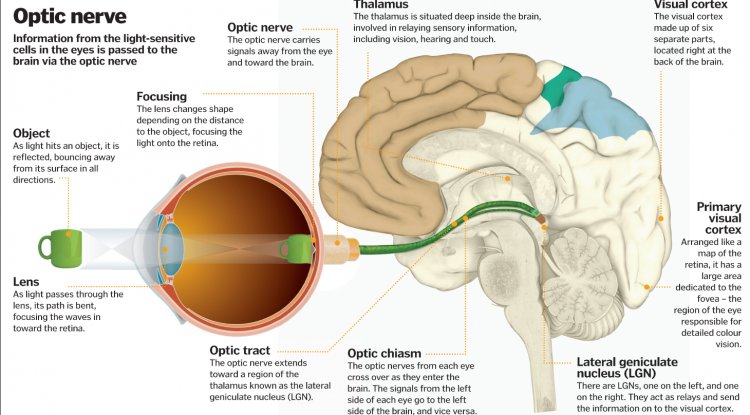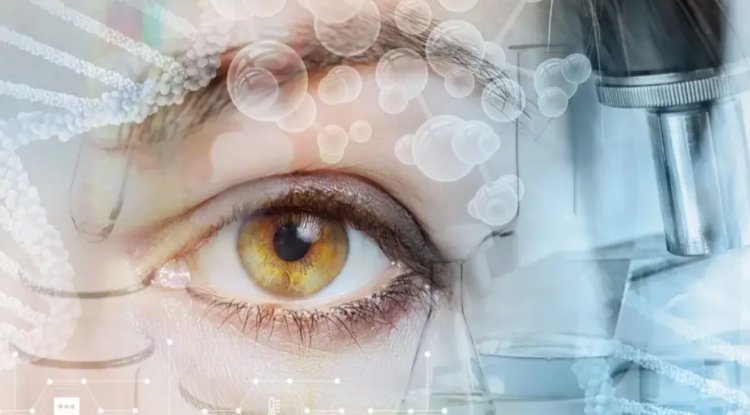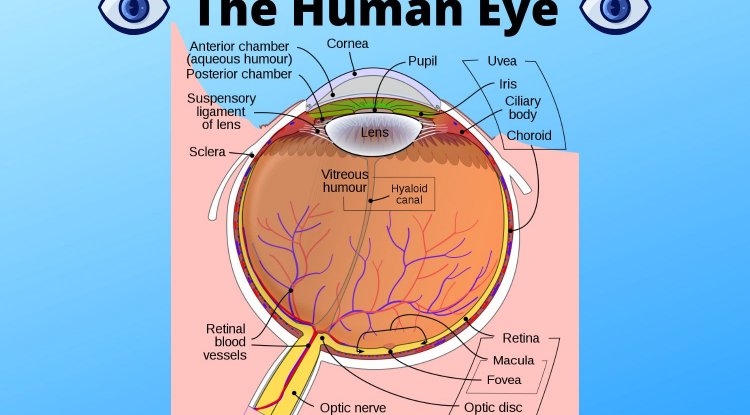About US
"Welcome to our website, where we explore the intricacies and wonders of the human body. Our topics are written and authored by Bahaa Fathy "ELMKALY", a researcher in human psychology. Through our content, we aim to shed light on the power of God in the human body and the ways in which He has crafted our bodies to function in perfect harmony. We believe that by understanding the intricacies of our own selves, we can better appreciate the greatness of our Creator. Join us on this journey of discovery and awe."
The human body is a marvel of engineering and design, and nowhere is this more evident than in the intricate and powerful system of the eye. The eye is truly a testament to the incredible power and wisdom of the Creator. From the precise curvature of the cornea to the delicate muscles that control the iris, every aspect of the eye is perfectly suited for its function.
The ability of the eye to perceive and interpret visual information is nothing short of miraculous. The eye is able to take in an enormous amount of data, and the brain is able to process this information in real-time to create a detailed and accurate representation of the world around us.
The Quran, in verse 'And in your selves, do you not see?', highlights the importance of looking within ourselves to understand the work of the creator. This verse serves as a reminder that the beauty and complexity of the human body, including the eye, is a reflection of the greatness of God.
Through understanding the intricacies of the eye, we are able to gain a deeper appreciation for the power and wisdom of the Creator. It is through this knowledge that we can come to a greater understanding of our place in the world and our relationship with the divine.
In conclusion, studying the human eye and its functions is an opportunity to reflect on the majesty of God and to give thanks for the gifts that He has bestowed upon us. It is a powerful reminder that everything we see and experience is a reflection of the Creator's boundless power and wisdom. It is not just an opportunity to learn about science but to strengthen our faith and connection to the divine.
"And in Your selves, Do You Not See?":
وَفِي أَنْفُسِكُمْ ۚ أَفَلَا تُبْصِرُونَ - القران الكريم
A Reflection on the Power of Self-Reflection in the Quran
The Quran, the holy scripture of Islam, contains many verses that encourage self-reflection and introspection. One such verse is Surah Al-Dhariyat, verse 21, which states "And in your selves, do you not see?" This verse serves as a reminder to Muslims to take a step back and reflect on their own actions and thoughts.
The human eye plays a crucial role in this process of self-reflection. The ability to see allows us to perceive and interpret the world around us, and it also allows us to see ourselves. The eye is a powerful tool that allows us to gain knowledge and wisdom, and it is through this knowledge and wisdom that we can improve ourselves and strive to become better people.
The verse in the Quran encourages individuals to look deep within themselves and reflect on their own actions, thoughts, and beliefs. This self-reflection can lead to self-improvement and a deeper understanding of oneself. It also encourages individuals to take responsibility for their own actions, rather than placing blame on others.
In conclusion, the verse "And in your selves, do you not see?" serves as a powerful reminder to take a step back and reflect on our own selves. The human eye plays a crucial role in this process, allowing us to gain knowledge and wisdom through self-reflection, which in turn can lead to self-improvement and a deeper understanding of oneself.
In the Quran, "And in your selves, do you not see? The verse is a reminder of the intricate and amazing design of the human body, including the eye, as evidence of the greatness of the Creator. The verse highlights the idea that if one can see the wonders within themselves, they should be able to see and believe in the existence and power of the Creator. The human eye is a complex and miraculous organ, capable of capturing and interpreting visual information in a split second. It is a reminder of the infinite wisdom and capability of the Creator, who has perfectly designed and created every aspect of our being. The verse serves as a call to reflection and contemplation, urging us to ponder on the marvels of the creation and to acknowledge the Creator's greatness.
In order to truly understand and appreciate the intricacies and complexities of the human body, it is important to look at the structures and systems that make it possible for us to function. One of the most fascinating and important of these is the human eye, which is a truly remarkable biological device. The verse "And in your selves, do you not see?" from the Quran serves as a reminder of the importance of examining ourselves and our bodies in order to better understand and appreciate the wonders of God's creation.
One reason we may write blogs about the intricacies and wonders of the human eye is to demonstrate the incredible intelligence and creativity of the creator. The eye, with its ability to perceive and process visual information, is a marvel of design and function. By studying and understanding the eye, we can gain a deeper appreciation for the genius and beauty of the natural world, and by extension, the creator who made it all possible. Additionally, writing about the eye can also serve as a reminder of our own responsibilities to care for and protect our bodies, as well as the world around us. It can also inspire us to reflect on our own capabilities and limitations as human beings and to contemplate the vastness and complexity of the universe. Overall, writing about the eye can serve as a way to connect with and understand the divine, while also inspiring us to live our lives with greater purpose and gratitude.
Writing blogs about the human eye and its functions is one way to delve deeper into this topic and explore the intricacies and marvels of the eye. By examining the eye's structure and functions, we can begin to understand how this complex organ works and how it allows us to see. Additionally, by looking at the history of the discovery of the eye and its functions, we can gain insight into how our understanding of the eye has evolved over time and how scientists and researchers have contributed to our current understanding.
Furthermore, by considering the verse "And in your selves, do you not see?" from the Quran, we can reflect on the importance of self-reflection and self-examination in understanding the wonders of God's creation. The verse serves as a reminder that true understanding and appreciation of the beauty and complexity of the human body begins with looking within ourselves.
In conclusion, writing blogs about the human eye and its functions, its history of discovery, and the verse "And in your selves, do you not see?" from the Quran is a way to deepen our understanding and appreciation of the human body, and ultimately, the greatness of the creator. It is also a reminder that true understanding of the beauty and complexity of the human body begins with self-reflection and self-examination.
"The purpose of these blog posts is not to provide scientific research, but rather to encourage self-reflection and contemplation as per the commandments of God, as understood by the author. The field of science is best left to experts and specialists, and the author's role is simply to serve as a reminder of the Creator's greatness."










